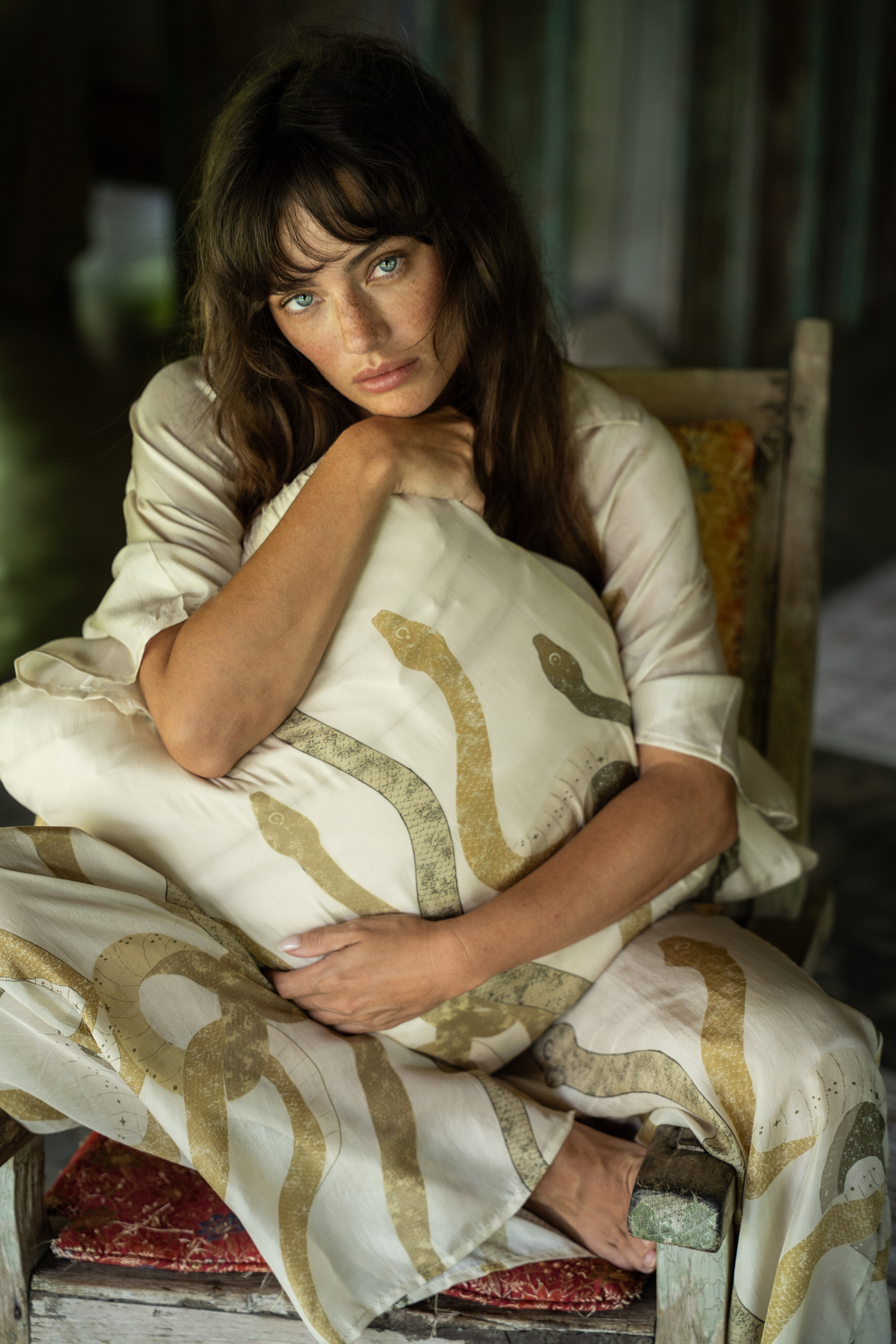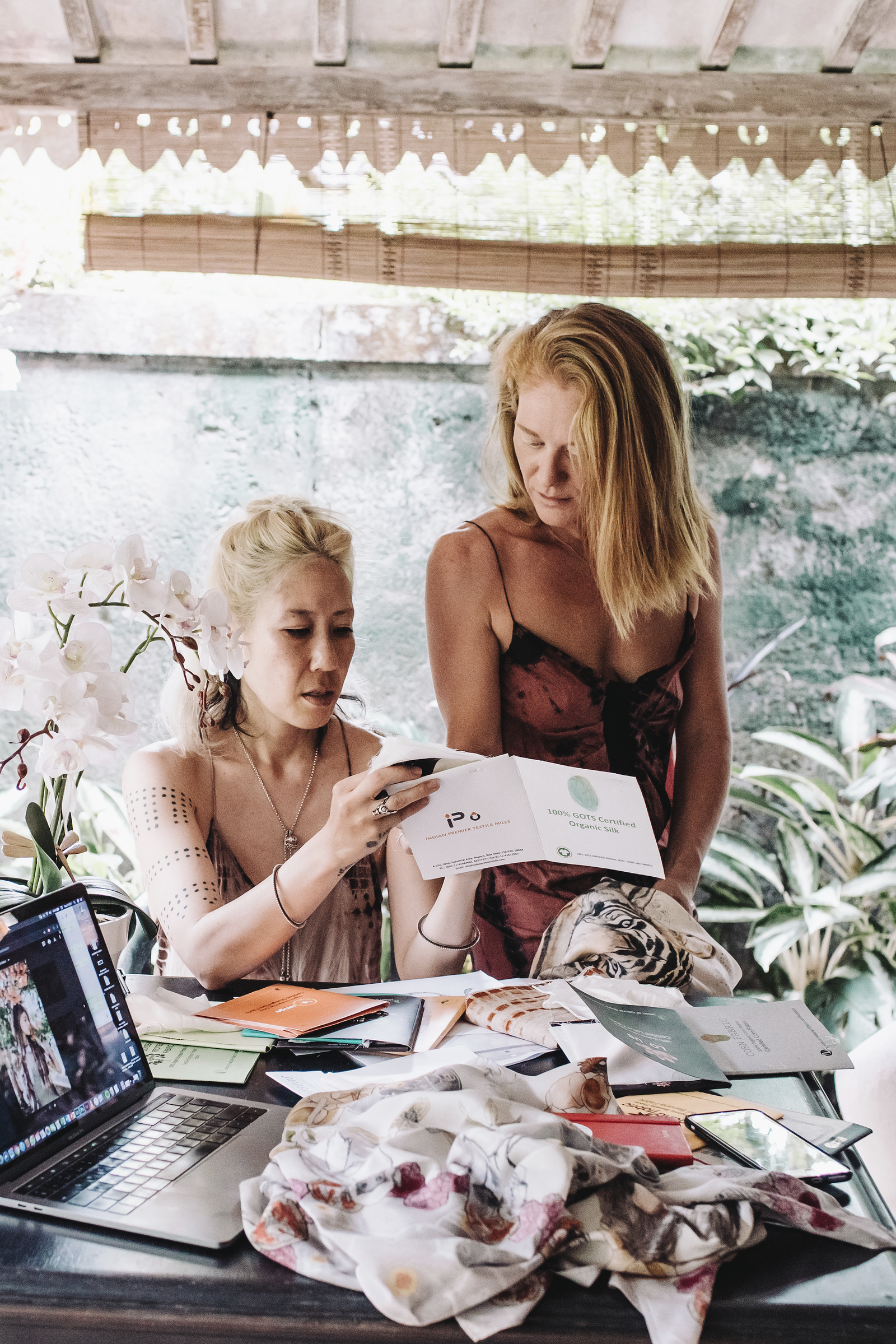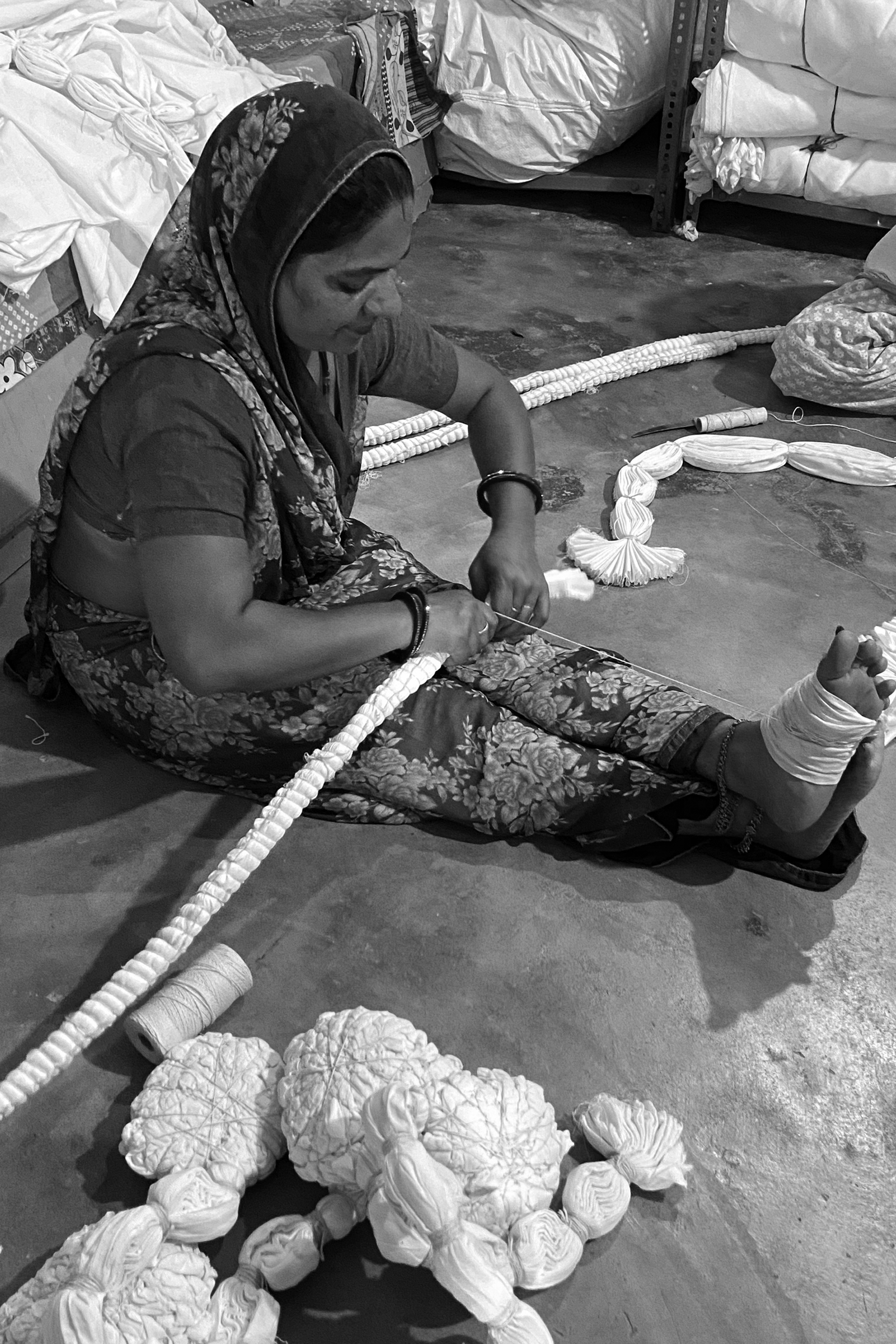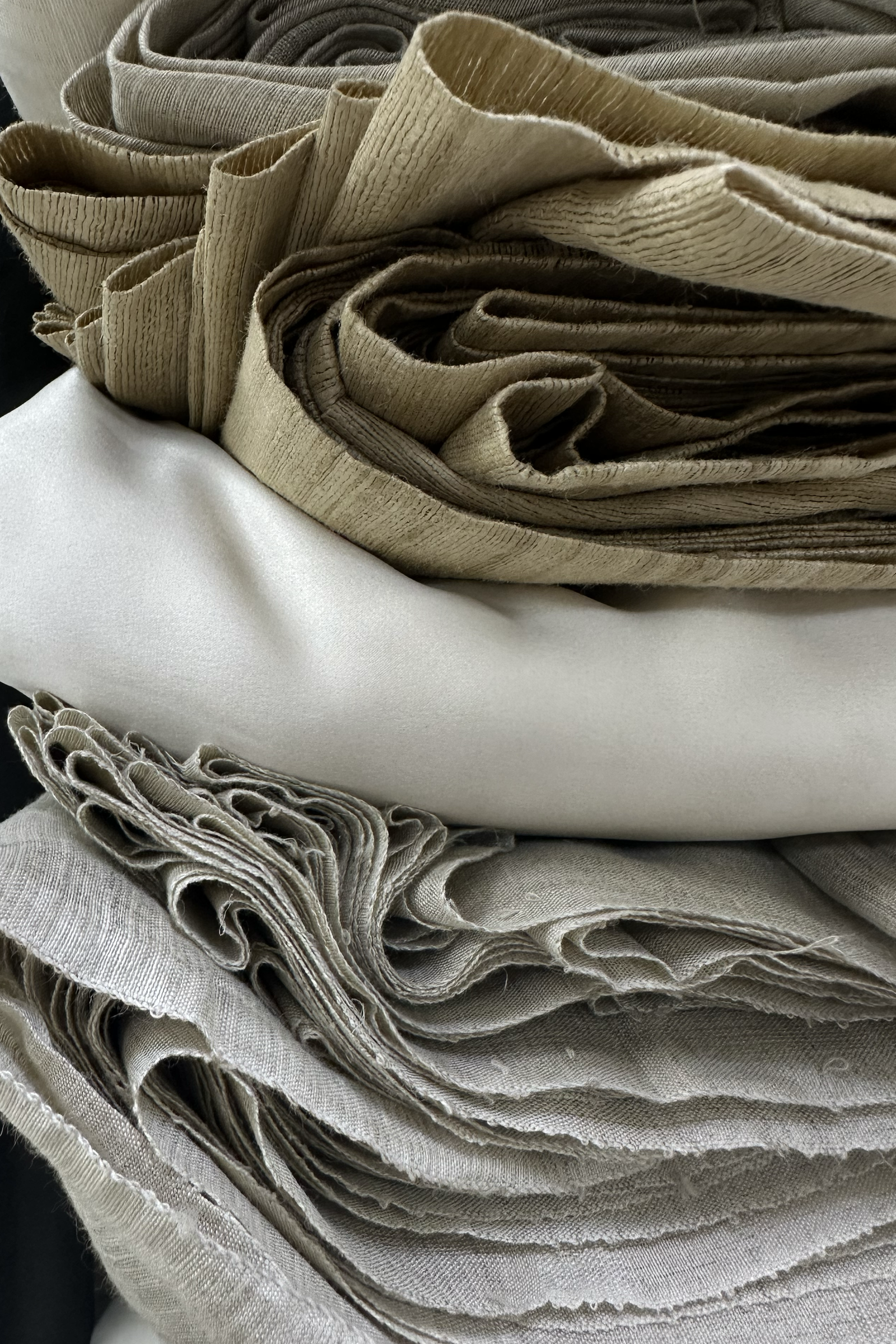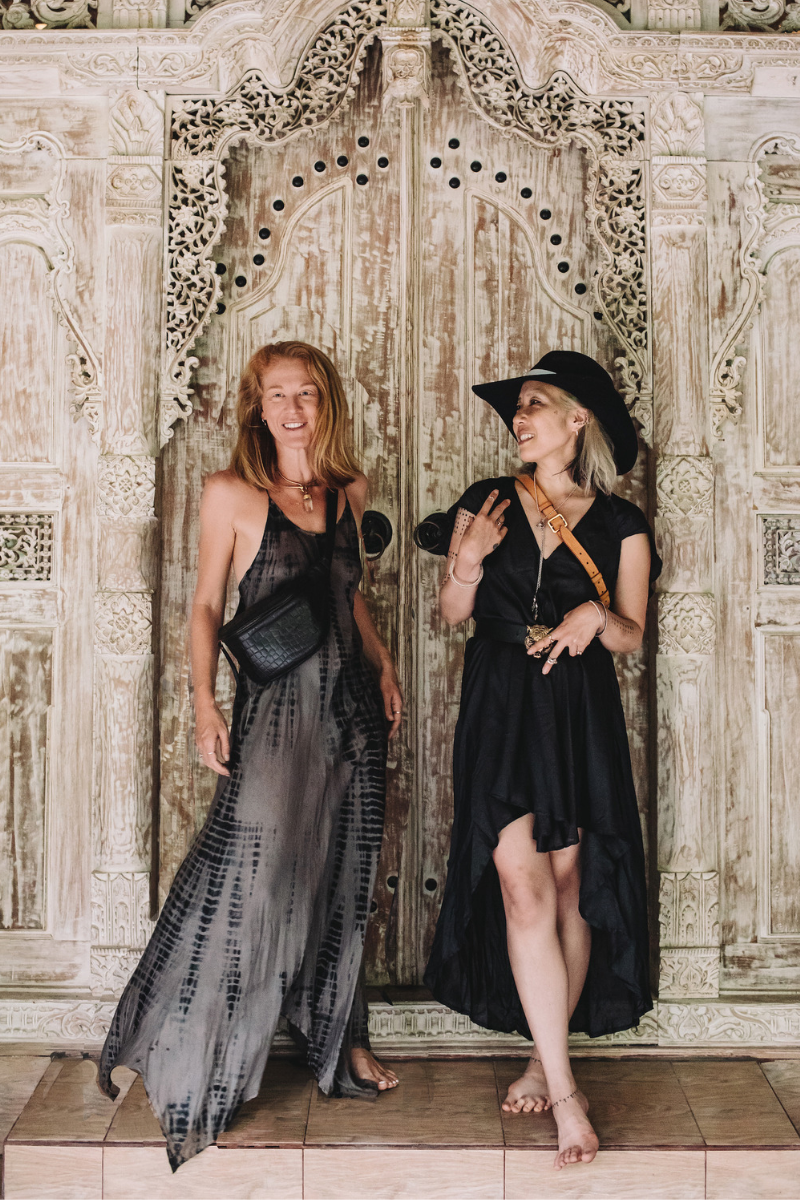Sustainability
At FARA Boutique, sustainability and ethics are paramount. We're acutely aware of the fashion industry's significant environmental impact, which contributes to 10% of global carbon emissions and extensive water consumption. Large-scale production often leads to excessive waste, with one garbage truck of clothes discarded every second. Toxic dyes further endanger local water sources.
To counteract these issues, we prioritise small-batch production, typically ranging from 10 to 100 garments per style, using non-toxic dyes. We uphold circular fashion principles, ensuring zero disposal of our products. Additionally, we prioritise the well-being of our staff and remain dedicated to ongoing education and improvement.
Our Core Values
The heart of our ethos is deeply rooted in sustainability, striving to take as little from the planet as possible while giving back as much as we can. Embracing a circular fashion model, we remain true in our commitment to working with our audited factories and suppliers, ensuring that our production processes adhere to sustainable practices that minimise waste and promote resource circulation. Utilising natural, sustainable fabrics coloured with non-toxic dyes, we ensure our practices align with our values.
We continue to produce our garments in small batches, minimising landfill waste throughout the production process, by reusing and recycling our scrap material and items, and using biodegradable packaging. Our respect for artisans in India drives us to keep production local and our production travel distances minimal, opting for land-based transportation, resulting in as small a carbon footprint as possible.
We're thrilled to announce the introduction of our sustainability icons on our website. Each garment listing will now feature these icons, providing you with valuable insights into how your garment was crafted and its journey to you. These icons will include details such as the use of non-toxic dyes, the distance traveled by your garment, and its carbon footprint.
Our Commitments
Rooted in a commitment to ethical and sustainable practices, FARA Boutique strives to empower local artisans and minimise its environmental footprint. With each stitch, we aim to not only create beautiful fashion but also foster a deeper connection to the world around us, and the women in whom we share it with…
- Talking openly about our journey to commit to a more sustainable future.
- Maintaining relationships with our suppliers and artisans.
- Continuing to better our fabrics and fibres.
- Training staff to ensure safety and sustainability.
Your questions answered
-
Sustainable fashion focuses on safeguarding the future of our planet, and every living being on it. It recognises that if we want to keep creating and buying new clothes, we must protect those who are making them, and the natural resources that are integral to their production. By advocating for ethical practices, the sustainable industry strives to create positive impacts, and prevent harm in the garments it produces. While achieving 100% sustainability in fashion may be challenging due to the inherent resource and energy consumption in garment production, sustainable fashion strives to be the best it can be in its pursuit of environmental and social responsibility.
-
All of our fabrics are made and bought in India. We are working on becoming fully traceable, being able to be 100% transparent with where fabrics are first cultivated, this is part of a commitment for the future.
-
Yes, we use AZO-Free Dyes. Azo dyes are synthetic organic compounds widely used as colourants in the textile industry, with an estimated 70% of fashion production using these colours. Although they are known for vibrant colours and versatility, they are also linked to major health and environmental concerns due the potential release of carcinogenic chemicals, non-biodegradability, and runoff pollution. This is why we use AZO free dyes when making our clothes, for we want our clothes to be biodegradable at the end of their time, we do not want to harm the workers who are dying our clothes, and want to prevent toxic chemicals from polluting our sacred earth.
-
Rather than following a linear path, circular fashion moves beyond the traditional take-make-dispose model, aiming to create an economy that restores itself, rather than end up in landfill., causing further waste and pollution. We implement this approach by minimising waste during production and design, repurposing scraps into items like bags or scrunchies, and finding alternative uses for samples, returns, or damaged goods rather than discarding them. Additionally, we provide comprehensive care instructions to extend the lifespan
-
We prioritise fair and safe working conditions for our tailors in our factory, of which is certified by SEDEX, C-TPAT, and BCI. We are working on our Supplier Code of Conduct, and we ensure that all collaborators uphold these standards. Regular visits to our factory are conducted, and we are striving towards making more visits to all our artisans in India to ensure that our standards are upheld, and they are being paid fairly and treated well.
-
Our clear garment bags are 100% biodegradable and compostable in home compost, made from plant starch. You can throw them away, and they will return to a natural state, but we also like to reuse them, either to carry liquids when travelling, or as a liner for small bins. Our recycled brown paper envelopes are reusable, and have a double tear tab, meaning you can reuse them for returns, or for parcels you need to send in the future, they are also recyclable and biodegradable. The same applies for our cardboard boxes.
Check out our FAQs or email our team and we'll do our best to answer.



